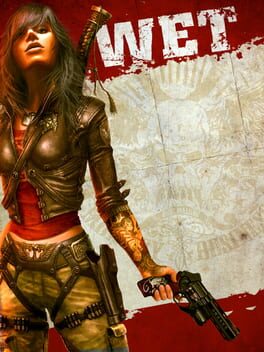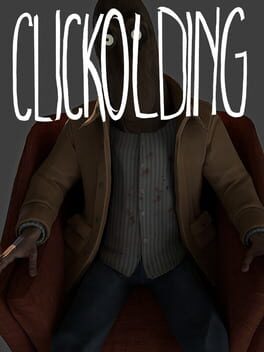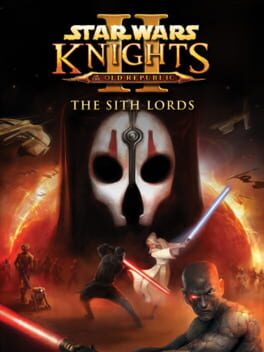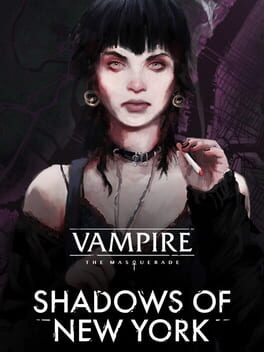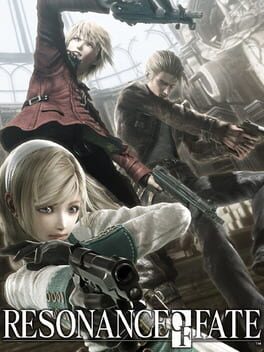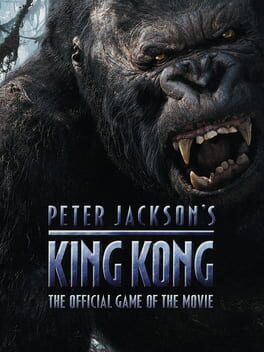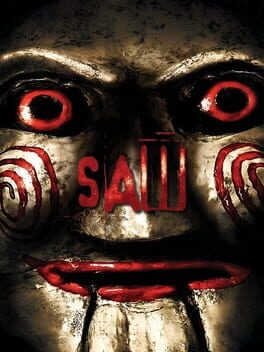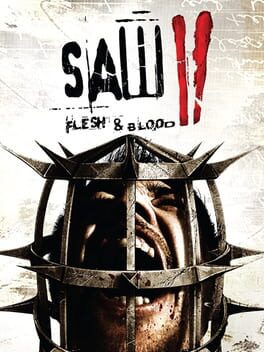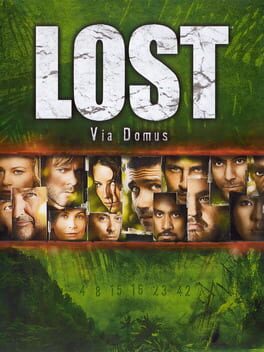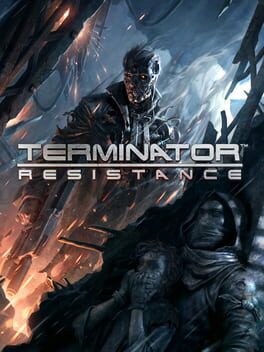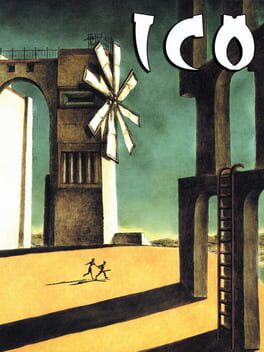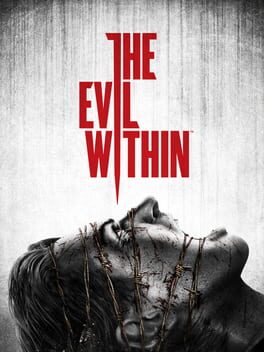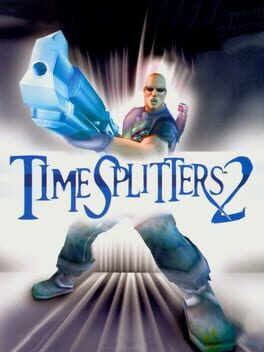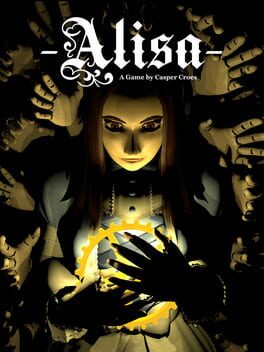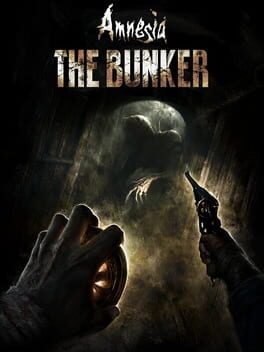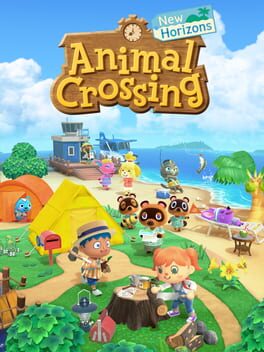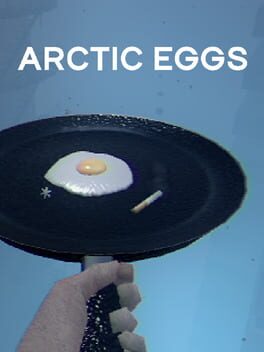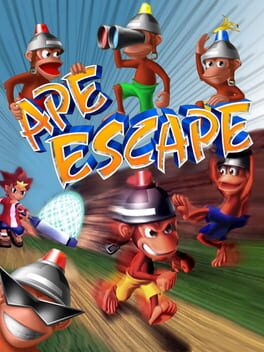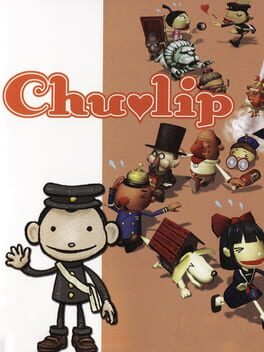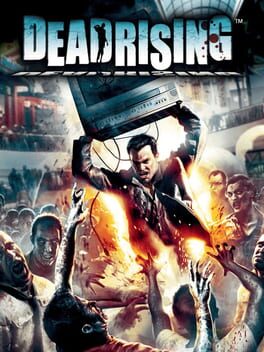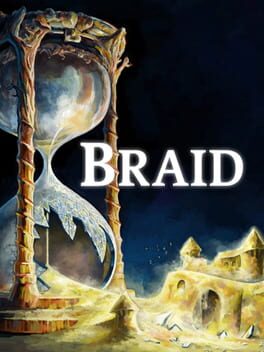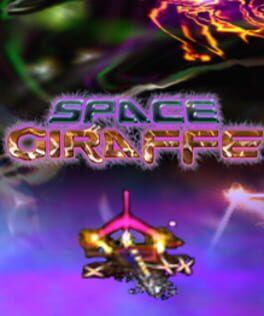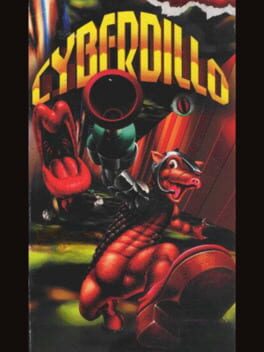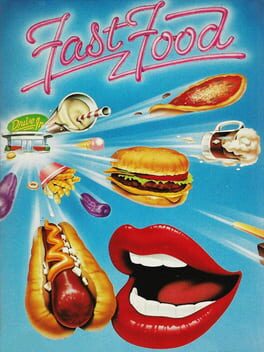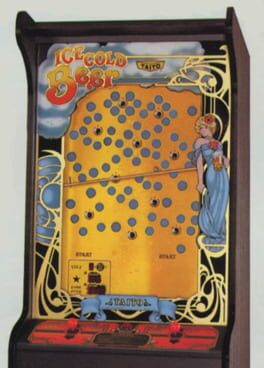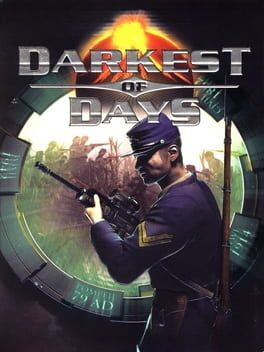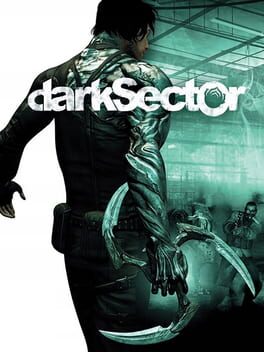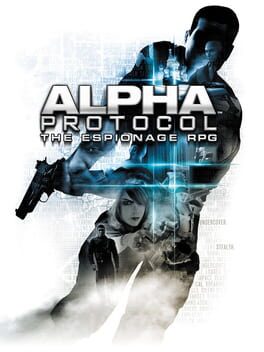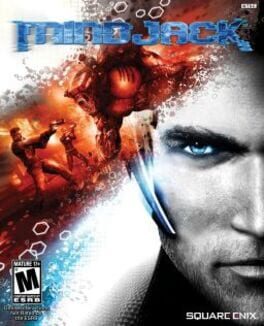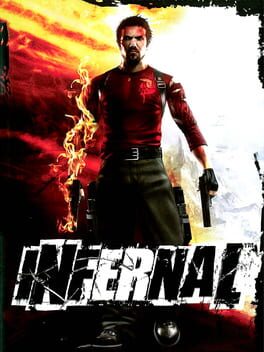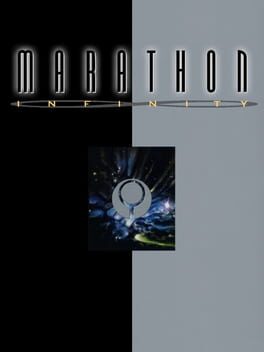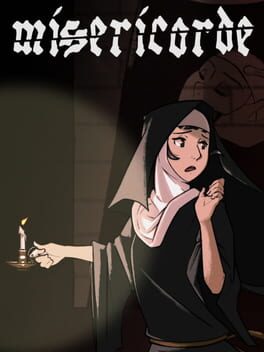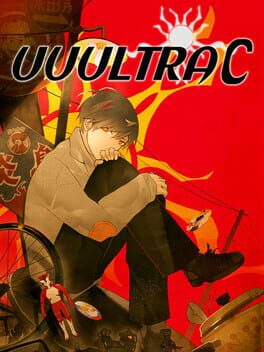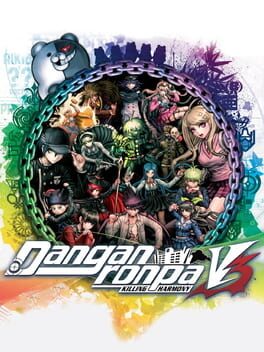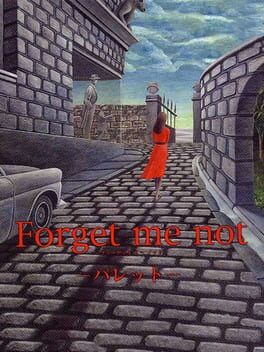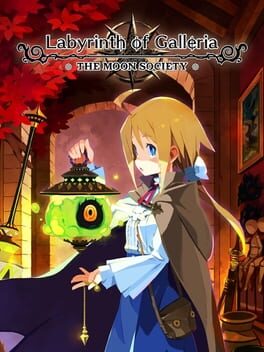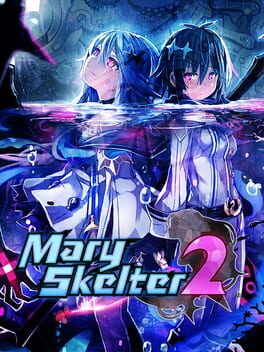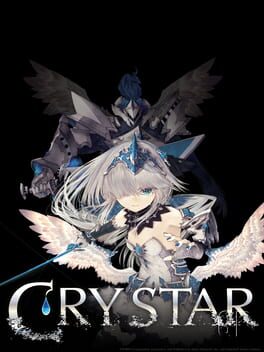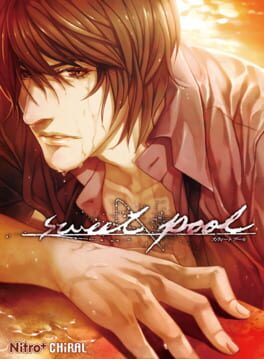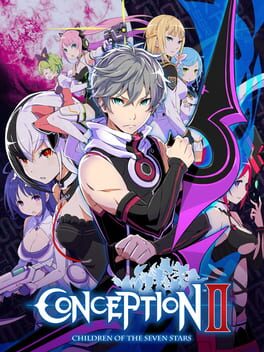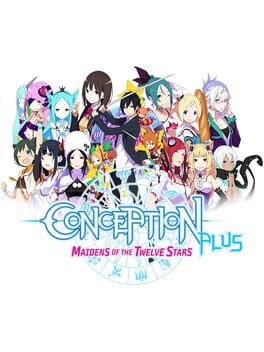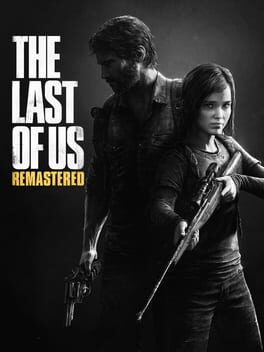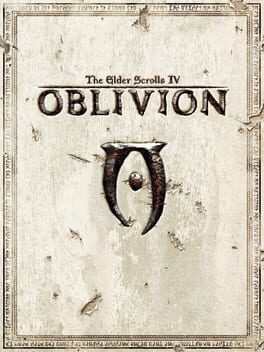KB0
1576 reviews liked by KB0
Wet
2009
Clickolding
2024
Gaia Attack 4
2010
game played while in vegas #1. really weird minigame rail shooter, uses like ARG + 2000s CG aliens & monsters as its tapestry for what are mostly p standard minigames for the genre. theres one cool minigame i liked where your reticle had to mouse over ghosts to reveal them, and the ghosts looked like pig from back at the barnyard. alien design also reminded me of that lenarr young video
Clickolding
2024
hard to overstate how fundamentally broken this game is even with TSLRCM. it played better on steam deck with proton and mods installed with wine wrappers than on my objectively more powerful pc. i lost probably two and a half hours total of progress over my playtime to crashes and bugs. hk-47s final piece never appeared in game despite me being functionally a completionist. often times minor geometry and pathing errors caused me to not even be able to open containers. these frustrations range from severe to minor but en masse this game is held together with duct tape and spit. it resists being played. and somehow on modern machines it's less of a problem child than kotor1 🤭 is it thematic that it's broken, JUST like the characters????
i do think the patch's restored content is transformative and informative. a lot of the guiding thematic principles of the game can be found on the cutting room floor. the completeness of the romantic entanglements, esp with visas and handmaiden, don't work without their cutscenes, missed context, additional encounters. you don't see how your relationship with them parallels kreia's with you without that context. but even still so much, perhaps more due to the game than the patch, feels unresolved, irresolute. things never work and that genuinely impacts the capacity for story telling. and on more mundane levels this has many obsidian hallmarks, overtuned and exhaustive combat encounters, finnicky flags for influence, outright bad puzzles.
but kreia is the main event. the writing and delivery of kreia justifies the project if at all. there's an easy reaction to her contrarianism and nietzschean thinking esp epitomized by her devils advocacy on nar shadaa where the tweets write themselves. but her character is driven by side perspectives, by challenging you always. it's a fascinating student mentor relationship in a game generally preoccupied with them (the councils relationship with you, revan's history, atris and telos) and it's one predicated on intentionality (she chastises you first thing in the game for corpse robbing to establish this trend). she elucidates upon the force and the history of the world and jedi in unusually esoteric fashion for a video game. avellone pushes the orientalism of SW into a nearly occult space through her, more resembling The Work than it has any right to. she's the abuela who is never happy. she loves you more than anything. her echoes through the story, and the exiles own unique qualities as a play character positioned exactly between TNO and NWN2s shardbearer, show a delicacy that star wars doesn't deserve. the ensemble (shout out mini kreia and oppenheimer) exists to contextualize her and the exile and do so admirably. shame most games just suck to the point that this feels refreshing to me. also, the controller scheme is great :)
i do think the patch's restored content is transformative and informative. a lot of the guiding thematic principles of the game can be found on the cutting room floor. the completeness of the romantic entanglements, esp with visas and handmaiden, don't work without their cutscenes, missed context, additional encounters. you don't see how your relationship with them parallels kreia's with you without that context. but even still so much, perhaps more due to the game than the patch, feels unresolved, irresolute. things never work and that genuinely impacts the capacity for story telling. and on more mundane levels this has many obsidian hallmarks, overtuned and exhaustive combat encounters, finnicky flags for influence, outright bad puzzles.
but kreia is the main event. the writing and delivery of kreia justifies the project if at all. there's an easy reaction to her contrarianism and nietzschean thinking esp epitomized by her devils advocacy on nar shadaa where the tweets write themselves. but her character is driven by side perspectives, by challenging you always. it's a fascinating student mentor relationship in a game generally preoccupied with them (the councils relationship with you, revan's history, atris and telos) and it's one predicated on intentionality (she chastises you first thing in the game for corpse robbing to establish this trend). she elucidates upon the force and the history of the world and jedi in unusually esoteric fashion for a video game. avellone pushes the orientalism of SW into a nearly occult space through her, more resembling The Work than it has any right to. she's the abuela who is never happy. she loves you more than anything. her echoes through the story, and the exiles own unique qualities as a play character positioned exactly between TNO and NWN2s shardbearer, show a delicacy that star wars doesn't deserve. the ensemble (shout out mini kreia and oppenheimer) exists to contextualize her and the exile and do so admirably. shame most games just suck to the point that this feels refreshing to me. also, the controller scheme is great :)
Riven
2024
cyan is punishing me personally for not giving a shit abt the stupid overarching story in their games in itself by completely jettisoning the topology survey aspect of the marbles puzzle, one of the most necessary parts of the original riven. like possibly the moment i fell in love, and they threw my baby out with the bath water. im not even trying to be too precious over "faithfulness" to the og or keeping the difficulty as brutal as it was in 1997, i like this moiety puzzle (im sure someone might complain abt it like i am but i think it lending a bit more intelligence and craftiness to the rivenese is a good thing in a game that could give more to the indigenous peoples such as the taos pueblo they both draw upon and are meant to invoke) and i am totally ok with having that mean trick with the 6th marble not make a return. but you'd think the bit where restarting a reckless resource extraction scheme that abstracts the world into points on a grid--just another puzzle for the player to interface with--all to harness power to the door into a single person capacity doomsday panic shelter would have some value to carry over in SOME reasonable form. it feels even worse when this remake is otherwise solid in its additions and reinterpretations, and most of its other flaws n misunderstandings are forgivable, or are at least not nearly as major to get as worked up over them. besides the animation for cho looking so bad when frankly he is the one performance in the game i cant overlook for NEEDING a good translation to unreal, yes even more than THAT one (and his was decently done compared to the others anyway). but that particular marbles nerf makes me so upset. the one single thing i literally wish i could just mod back in but thats impossible so instead ill bitch about it on this depraved website. tying into that, the waffle iron activation feels so unthreatening and limp dick too, like you're turning on any other machine. glad they kept most of Traditional Family Values Conservative Nevada Congress Candidate Marty O'Donnell's sound design but they somehow couldn't for the part where you are just maybe supposed to feel bad for what you did. riven is about how you are a good person who stops the evil imperialist and you dont need to reflect on your own contradictory relationships to a virtual world, or the world you actually inhabit.
anyways its a good and fairly impressive remake that works as a companion to the original to the point that it's genuinely hard to tell anyone to play one version over the other, for many different reasons. this, or with even higher praise given, is an opinion many fans have. i am being dramatic but when you get your hopes up after largely liking how its done so far and get excited to see how one of ur fav parts is handled and the answer is "oh its gone :) how about doing some quick math instead?" and having it be the one thing here i do not understand any reason as to why its gone, it stings. so points deducted for giving me trust issues. opinion may drop on future reflection. if it was removed bc that part of the marbles was too hard to even just tweak a little to compensate for then let me say as hatefully as possible: skill issue
anyways its a good and fairly impressive remake that works as a companion to the original to the point that it's genuinely hard to tell anyone to play one version over the other, for many different reasons. this, or with even higher praise given, is an opinion many fans have. i am being dramatic but when you get your hopes up after largely liking how its done so far and get excited to see how one of ur fav parts is handled and the answer is "oh its gone :) how about doing some quick math instead?" and having it be the one thing here i do not understand any reason as to why its gone, it stings. so points deducted for giving me trust issues. opinion may drop on future reflection. if it was removed bc that part of the marbles was too hard to even just tweak a little to compensate for then let me say as hatefully as possible: skill issue
Clickolding
2024
even tho this is more than a bit cringe and corny and still runs a bit short to feel fully colored in this is sizzling with perspective and personality. like i LIKE that i scoffed at the lines about obayashi's house. i think princess being arcueid but searching for scrooge mcduck figures because she burnt out on high art and wants something low to feel anything is so stupid and so great. so personable. hope's monologue is classically on brand. intensely noided game. julia's being a young goth intellectual, being a lapsed eastern orthodox catholic, being a toxic lesbian, being lasombra, being a fail artist, an ex journalist, a polish immigrant turned undead immigration officer are all equally important to her character but you as a player modulate her cynicism and her severity and that feels like genuinely the correct way to do confined but meaningful roleplay in this scenario. my friend and i have had some conversations abt the role of players wrt avatars and defining character from the perspective of us both being writers and i feel like this is a strong argument for her feelings. the art is really good still, many reused assets but that helps to define and reiterate space i feel, and the musics better, but i love the fullscreen images. i think the yarn issss still a smidge underwhelming but the branched endings do rly work for julia's character and do feel summative. i feel like while these games don't rly have a handle on the high life, the prince's cabinet, the primogens (in part bc this is canon and the canon is mutually reciprocative), ultimately this is just so attuned to where i was at in 2020 that if i played it then it'd probably have made some irresponsible decisions wrt tabletop roleplaying. instead it's just a very solid iteration on coteries that supersedes it fully. 👍👍
not to be a BITCH !! But i think critics didnt get on with this bc vtmb is so ... mechanics oriented and has interactivity on the level of like an immsim with the mindset of a crpg. it set a precedent of not literalism to the the sourcebooks but a stricter facsimile. this + coteries pay a lot of lip service but are visual novels in the western tradition (not actually sure if oelvn) and i think there's even now some rejection of vns on the basis of "lack of gameplay" from traditional games publications and less freakish hobbyists 🤭 i don't begrudge anyone that bc WHO LIKES READING ANYMORE !! but i was genuinely shocked to find this game in particular had lukewarm reception at best 🥲 so i do rly think its that. unless its a gimmick or is merely evoking sometimes a VN many pubs just dgaf
not to be a BITCH !! But i think critics didnt get on with this bc vtmb is so ... mechanics oriented and has interactivity on the level of like an immsim with the mindset of a crpg. it set a precedent of not literalism to the the sourcebooks but a stricter facsimile. this + coteries pay a lot of lip service but are visual novels in the western tradition (not actually sure if oelvn) and i think there's even now some rejection of vns on the basis of "lack of gameplay" from traditional games publications and less freakish hobbyists 🤭 i don't begrudge anyone that bc WHO LIKES READING ANYMORE !! but i was genuinely shocked to find this game in particular had lukewarm reception at best 🥲 so i do rly think its that. unless its a gimmick or is merely evoking sometimes a VN many pubs just dgaf
Tunic
2022
Resonance of Fate
2010
292 lists liked by KB0
by poisonpink |
25 Games
by 87th |
28 Games
by P__B |
35 Games
by FMTownsParty |
20 Games
by yagihimesama |
53 Games
by goznog |
58 Games
by poisonpink |
28 Games
